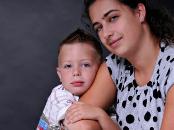Attachment Issues and Adoptive Families
 Adoption is a gift for both the adoptive family and the child. But the gift doesn’t always turn out to be what was expected. Every child who is adopted has experienced a significant break in attachment; these interruptions in attachment can change the structure and chemical activity in the brain. What adoptive parents often see as willfully bad behavior may simply be symptoms of a brain impacted by these attachment difficulties, by trauma, or by a chronically dysregulated environment.
Adoption is a gift for both the adoptive family and the child. But the gift doesn’t always turn out to be what was expected. Every child who is adopted has experienced a significant break in attachment; these interruptions in attachment can change the structure and chemical activity in the brain. What adoptive parents often see as willfully bad behavior may simply be symptoms of a brain impacted by these attachment difficulties, by trauma, or by a chronically dysregulated environment.
Mothers and fathers have room in their hearts for as many children as they bring into their lives. A child has room in his or her heart for one mommy and one daddy. Transitioning from one parent or set of parents to a new set – who are strangers – is traumatic in and of itself. There are things adoptive parents can do to ease the transition and increase the likelihood of their adoptive child to bond.
If your child’s adoption did not take place at birth, it is important to remember that your child has a history that you are not part of, and that history is a significant and formative part of this child. It is vital to accept and acknowledge that. Children who were adopted from a foreign country are also dealing with cultural adaptation and a new language process. Everything is different for the child who is adopted from overseas.
Fonda is TBRI trained and loves helping adopted children and their families get to thriving. Also, BrainPaint neurofeedback - brainwave training - is a highly effective method of reducing the impact of trauma on the brain and increasing regulation. As we calm the trauma centers and get the brain better regulated, many children become more able to form
healthy attachments.
Please refer to the BrainPaint page of this site for more information.